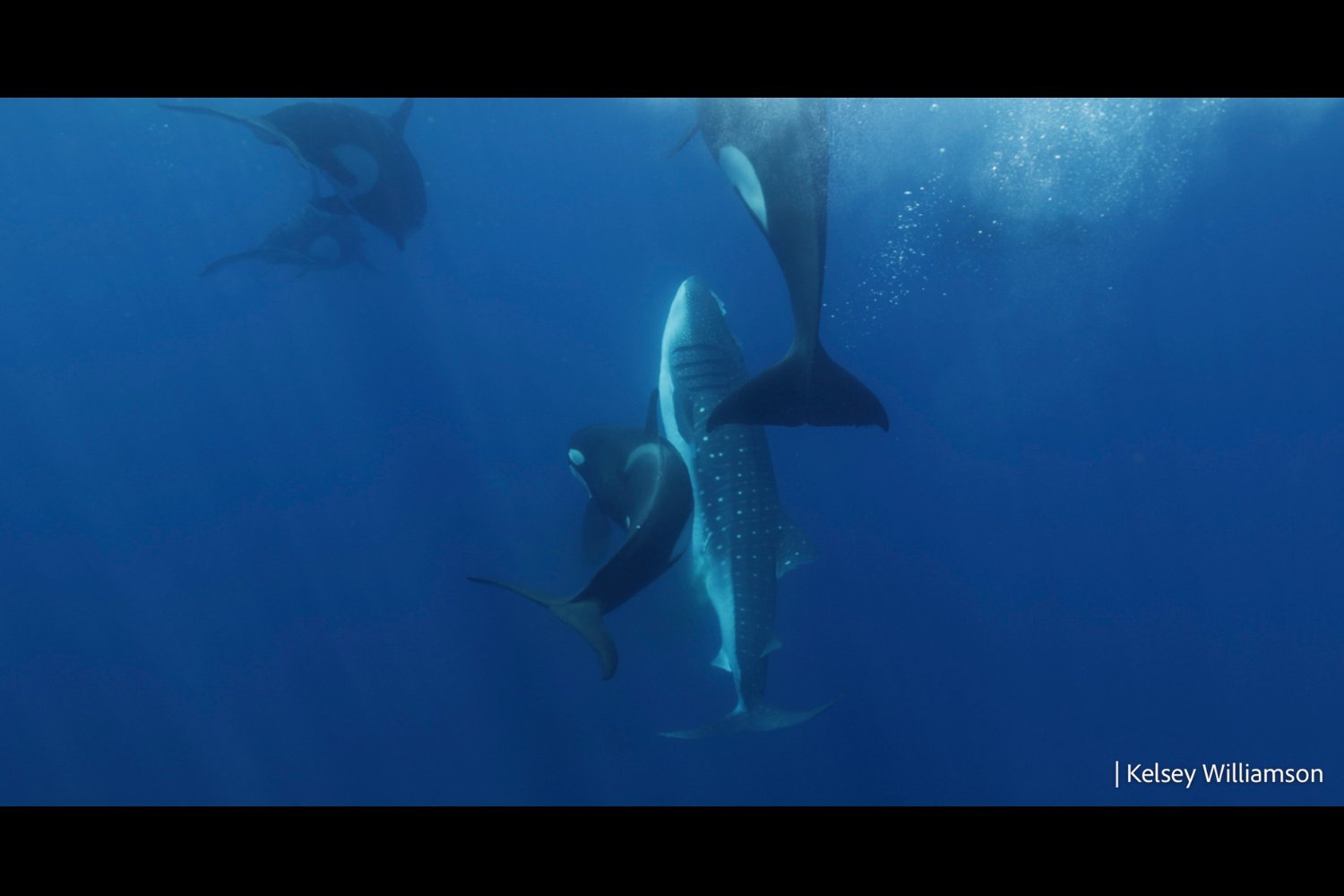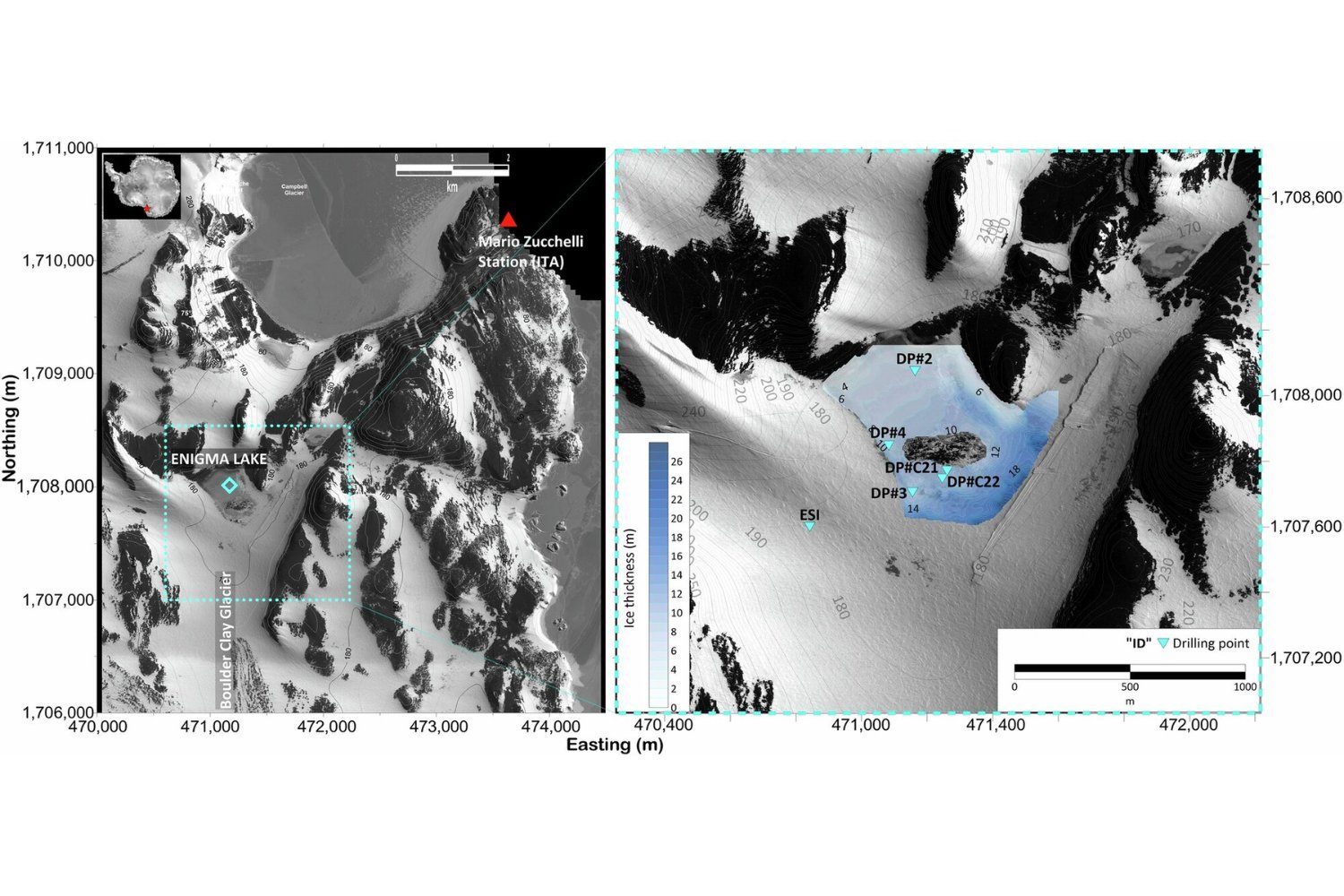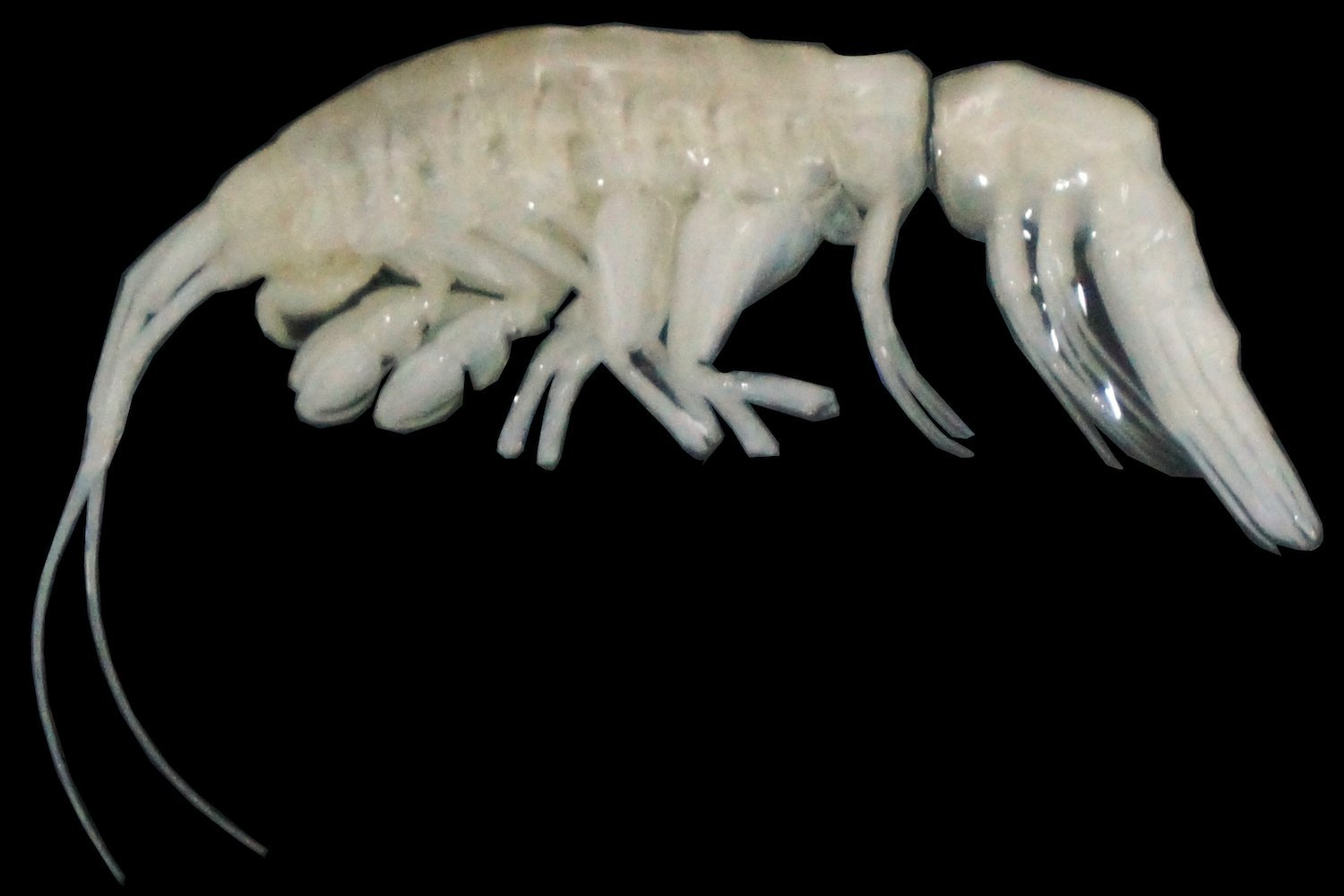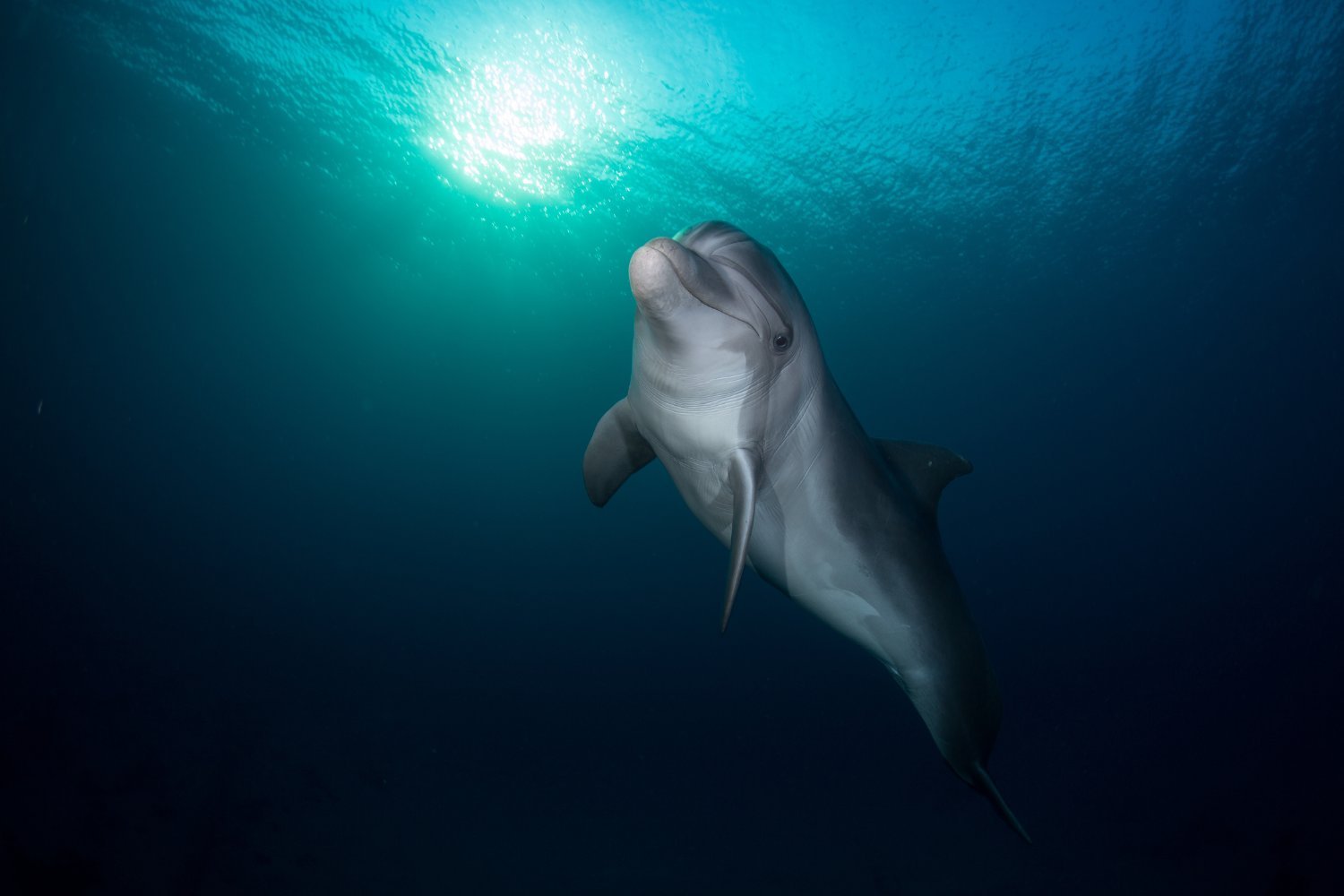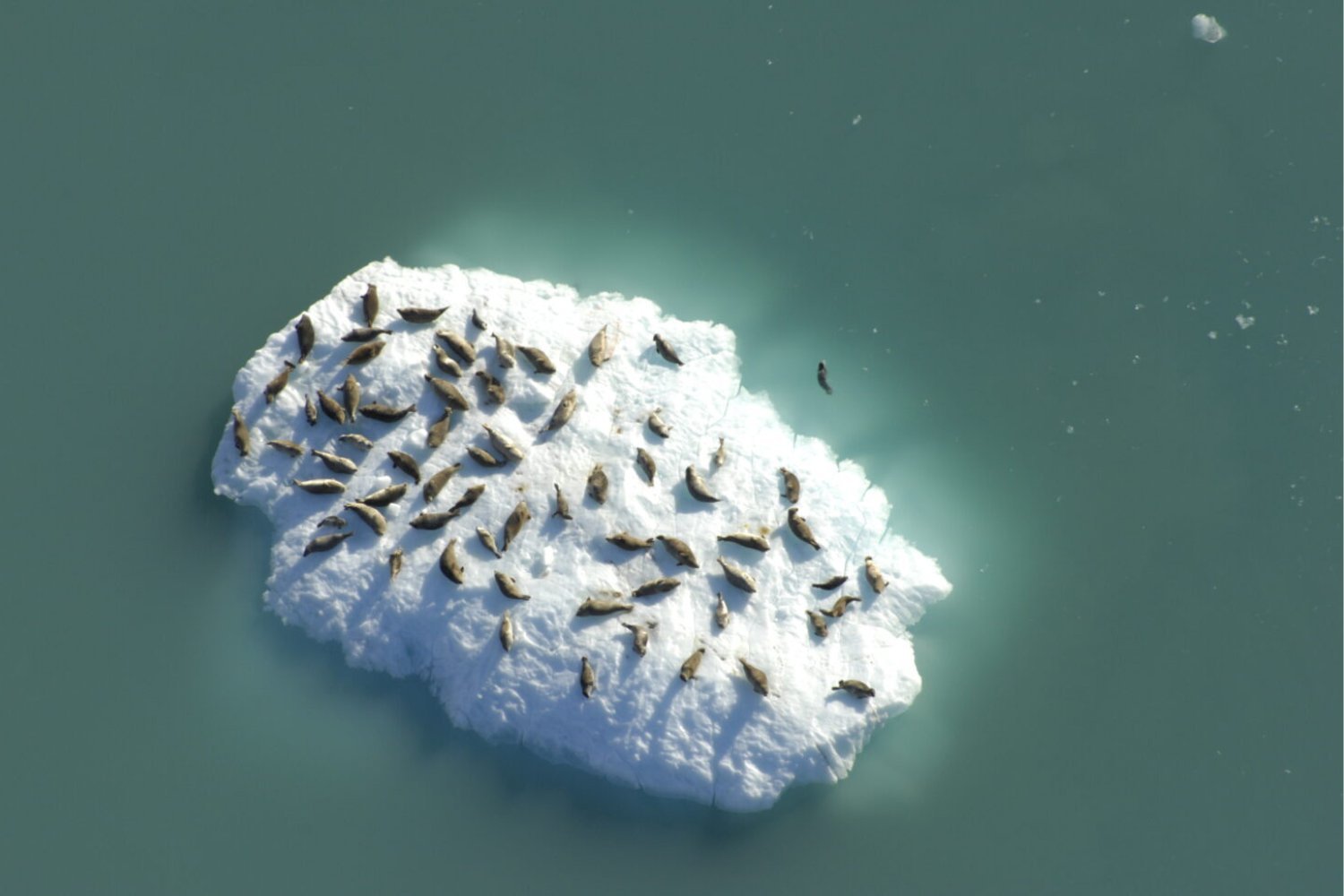Orcas, known as Orcinus orca, are formidable predators. Recent scientific discoveries reveal a surprising addition to their prey list: whale sharks (Rhincodon typus), the largest fish in the world. This groundbreaking observation expands our understanding of orca hunting strategies and raises important questions about the ecological dynamics of these marine giants.
Marine biologists documented this previously unconfirmed behavior in the Southern Gulf of California, the expanse of water separating the Baja California peninsula from mainland Mexico. Evidence gathered over six years highlights several whale shark attacks, many involving a specific male orca identified as Moctezuma. While research is ongoing, these findings suggest that these killer whales may have developed and shared specialized knowledge enabling them to successfully hunt this massive prey.
Orcas, despite their often-portrayed friendly image in popular culture, are apex predators with diverse diets. They hunt various fish, rays, and marine mammals, including other dolphins. While orcas have been observed hunting different shark species, including great white sharks, preying on whale sharks represents a significant challenge. The size difference is substantial. Adult orcas average 20 feet (6 meters) in length and weigh around six tons. In contrast, whale sharks can reach lengths of 45 feet (13.7 meters) and weigh up to 20 tons, with some individuals even larger.
Adult whale sharks are generally considered to have no natural predators. However, juveniles are sometimes vulnerable to sharks and other large fish. Whale sharks, including juveniles, are known to feed in the Gulf of California. There have been anecdotal reports of orcas hunting whale sharks in the region, including adults. This new research, published in Frontiers in Marine Science, provides the first scientific confirmation of this predatory behavior.
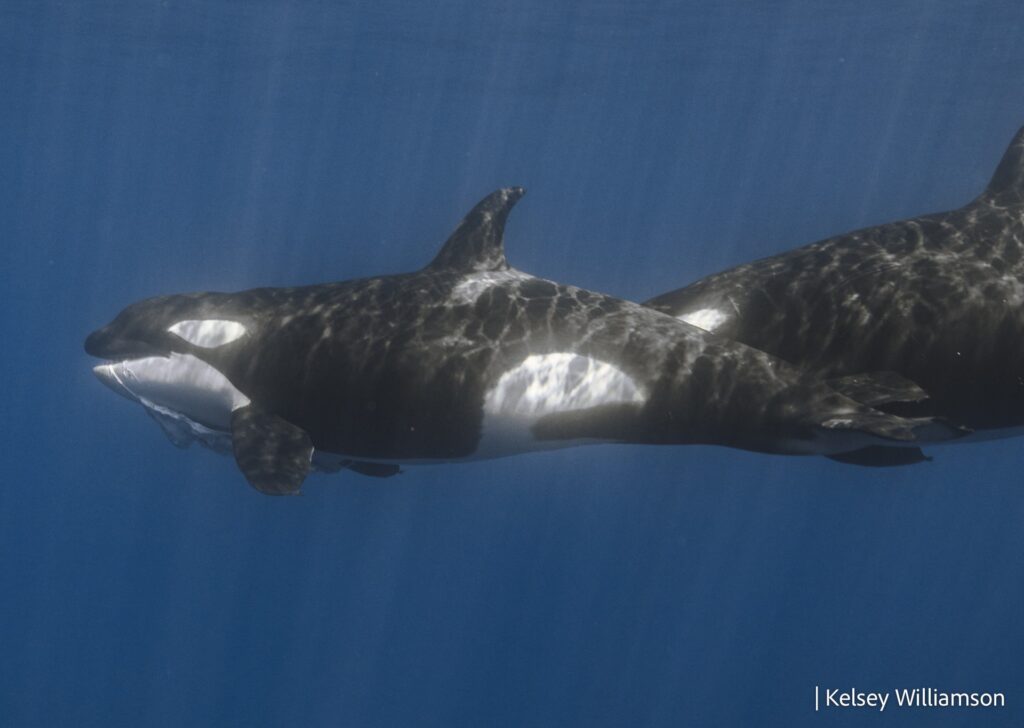 Orcas with whale shark carrion
Orcas with whale shark carrion
Marine biologist Erick Higuera Rivas and colleagues collected photo and video evidence from both the public and scientific sources documenting four hunting events between 2018 and 2024. The evidence reveals a coordinated hunting strategy employed by the orcas. They systematically weaken and eventually kill their massive prey by targeting a specific area: the pelvis.
Coordinated Hunting Strategy
“Our findings demonstrate a collaborative hunting technique used by orcas against whale sharks,” explained Higuera Rivas, a scientist at Conexiones Terramar, a non-profit marine research organization. “They focus attacks on the pelvic area, causing significant bleeding and ultimately allowing access to the lipid-rich liver.”
The orca Moctezuma was observed in three of these attacks. Another female orca, previously seen with Moctezuma, also participated in one attack. The consistent presence of these individuals, combined with their precise hunting method, strongly suggests they belong to a pod specializing in hunting whale sharks.
“During the hunt, the pod works together, striking the whale shark to turn it upside down,” Higuera Rivas elaborated. “This induces tonic immobility, preventing the shark from voluntary movement or escaping to deeper waters. This controlled position allows the orcas to easily and quickly access the pelvic region and extract vital organs.”
Implications and Future Research
Both whale sharks and orcas have wide distributions, though whale sharks prefer warmer, tropical waters. It’s possible that other orca populations have also developed this hunting technique, although further research is needed to confirm this. If Moctezuma’s pod is unique in their whale shark hunting specialization, it could have significant implications for the conservation of this marine ecosystem. Any disruption to the whale shark population in the Gulf of California could impact their overall survival.
Researchers emphasize the need for responsible tourism and visitor practices to minimize environmental disturbance in the area. This discovery underscores the vast unknown within our oceans, even regarding well-known marine creatures like orcas and whale sharks. Continued research is crucial to fully understand these complex predator-prey relationships and ensure the long-term health of our marine ecosystems.



